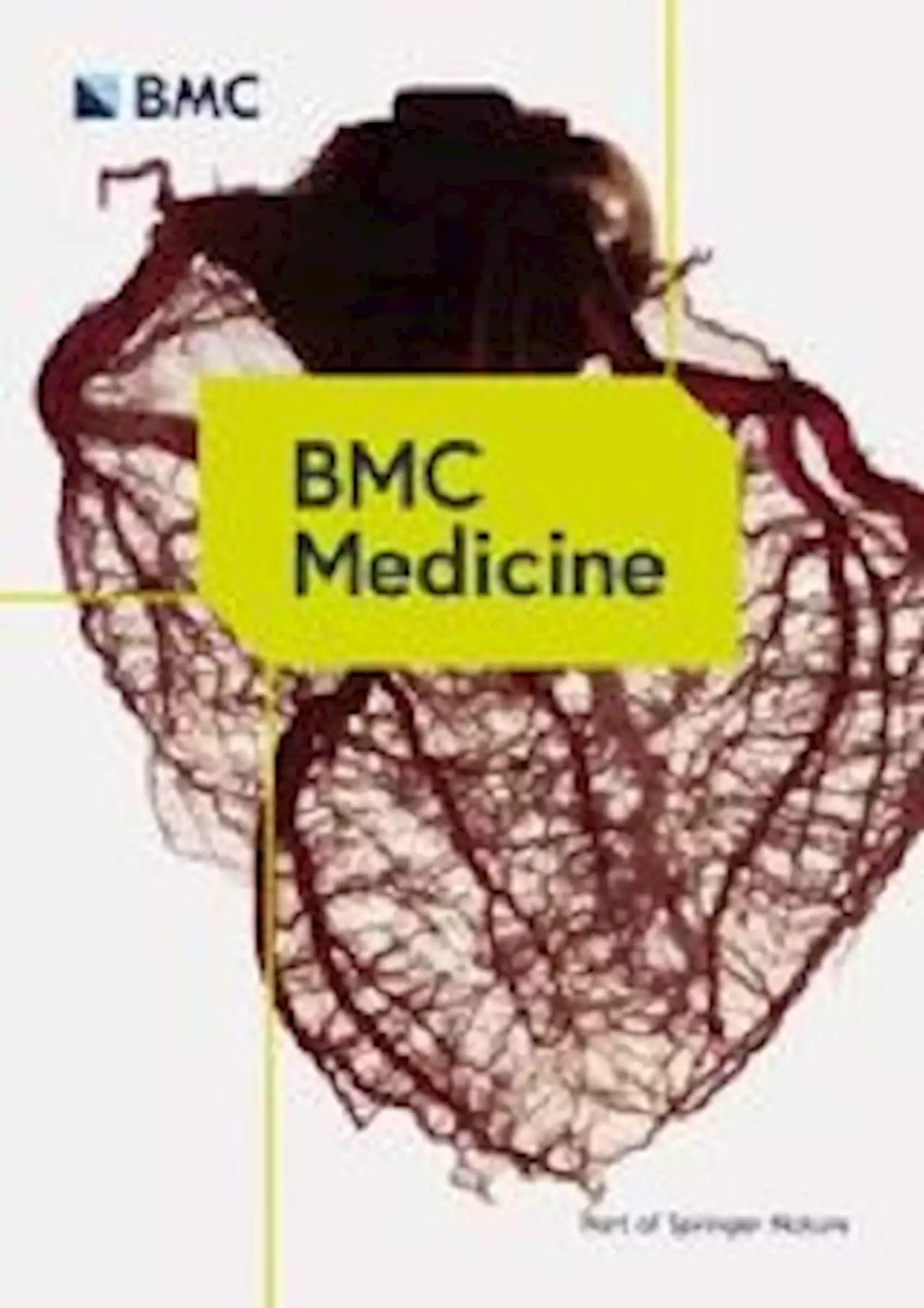Researchers identify a novel RSV variant associated with prolonged infection Respiratory Syncytial Virus RSV Infectious Disease Pathogen Respiratory JIDJournal epfl EmoryUniversity PittTweet VanderbiltU
By Suchandrima BhowmikNov 20 2022Reviewed by Benedette Cuffari, M.Sc. A new The Journal of Infectious Diseases study examines pathogen or host genetic risk factors for RSV infection and whether certain viral variants are associated with prolonged infection.
All children between the age of two to three years are infected by RSV at least once. RSV mainly infects the lower and upper respiratory tract epithelium; however, it has also been found in non-airway sources. Although RSV typically causes acute respiratory infection, it can also lead to persistent or prolonged illness in some individuals.
About the study The current study involved healthy-term infants who suffered from prolonged RSV infection. A viral genome-wide association study was performed using RSV whole-genome sequencing to understand the relationship between prolonged RSV infection in infants and viral genotypes. RSV infection had little to no impact on the genotypes of the infants. Moreover, prolonged infection was caused by viruses from different phylogenetic clades compared to a single specific clade. Similar RSV sequences were observed for initial and subsequent viral detection, thus suggesting that these were prolonged infections.
United Kingdom Latest News, United Kingdom Headlines
Similar News:You can also read news stories similar to this one that we have collected from other news sources.
 Housing boss sacked following mould exposure death of Awaab IshakThe chief executive of a housing organisation has been removed “with immediate effect” after a two-year-old boy died from exposure to mould.
Housing boss sacked following mould exposure death of Awaab IshakThe chief executive of a housing organisation has been removed “with immediate effect” after a two-year-old boy died from exposure to mould.
Read more »
 Housing complaints ignored due to prejudice, says ex-children’s commissionerAn inquest into the death of Awaab Ishak prompted an outcry this week after it found he died from a respiratory condition caused by mould
Housing complaints ignored due to prejudice, says ex-children’s commissionerAn inquest into the death of Awaab Ishak prompted an outcry this week after it found he died from a respiratory condition caused by mould
Read more »
 Risk for newly diagnosed diabetes after COVID-19: a systematic review and meta-analysis - BMC MedicineBackground There is growing evidence that patients recovering after a severe acute respiratory syndrome coronavirus 2 (SARS-CoV-2) infection may have a variety of acute sequelae including newly diagnosed diabetes. However, the risk of diabetes in the post-acute phase is unclear. To solve this question, we aimed to determine if there was any association between status post-coronavirus disease (COVID-19) infection and a new diagnosis of diabetes. Methods We performed a systematic review and meta-analysis of cohort studies assessing new-onset diabetes after COVID-19. PubMed, Embase, Web of Science, and Cochrane databases were all searched from inception to June 10, 2022. Three evaluators independently extracted individual study data and assessed the risk of bias. Random-effects models estimated the pooled incidence and relative risk (RR) of diabetes compared to non-COVID-19 after COVID-19. Results Nine studies with nearly 40 million participants were included. Overall, the incidence of diabetes after COVID-19 was 15.53 (7.91–25.64) per 1000 person-years, and the relative risk of diabetes after COVID-19 infection was elevated (RR 1.62 [1.45–1.80]). The relative risk of type 1 diabetes was RR=1.48 (1.26–1.75) and type 2 diabetes was RR=1.70 (1.32–2.19), compared to non-COVID-19 patients. At all ages, there was a statistically significant positive association between infection with COVID-19 and the risk of diabetes: 65 years: RR=1.68 (1.22–2.30). The relative risk of diabetes in different gender groups was about 2 (males: RR=2.08 [1.27–3.40]; females: RR=1.99 [1.47–2.80]). The risk of diabetes increased 1.17-fold (1.02–1.34) after COVID-19 infection compared to patients with general upper respiratory tract infections. Patients with severe COVID-19 were at higher risk (RR=1.67 [1.25–2.23]) of diabetes after COVID-19. The risk (RR=1.95 [1.85–2.06]) of diabetes was highest in the first 3 months after COVID-19. These results remained after taking confounding factors into acco
Risk for newly diagnosed diabetes after COVID-19: a systematic review and meta-analysis - BMC MedicineBackground There is growing evidence that patients recovering after a severe acute respiratory syndrome coronavirus 2 (SARS-CoV-2) infection may have a variety of acute sequelae including newly diagnosed diabetes. However, the risk of diabetes in the post-acute phase is unclear. To solve this question, we aimed to determine if there was any association between status post-coronavirus disease (COVID-19) infection and a new diagnosis of diabetes. Methods We performed a systematic review and meta-analysis of cohort studies assessing new-onset diabetes after COVID-19. PubMed, Embase, Web of Science, and Cochrane databases were all searched from inception to June 10, 2022. Three evaluators independently extracted individual study data and assessed the risk of bias. Random-effects models estimated the pooled incidence and relative risk (RR) of diabetes compared to non-COVID-19 after COVID-19. Results Nine studies with nearly 40 million participants were included. Overall, the incidence of diabetes after COVID-19 was 15.53 (7.91–25.64) per 1000 person-years, and the relative risk of diabetes after COVID-19 infection was elevated (RR 1.62 [1.45–1.80]). The relative risk of type 1 diabetes was RR=1.48 (1.26–1.75) and type 2 diabetes was RR=1.70 (1.32–2.19), compared to non-COVID-19 patients. At all ages, there was a statistically significant positive association between infection with COVID-19 and the risk of diabetes: 65 years: RR=1.68 (1.22–2.30). The relative risk of diabetes in different gender groups was about 2 (males: RR=2.08 [1.27–3.40]; females: RR=1.99 [1.47–2.80]). The risk of diabetes increased 1.17-fold (1.02–1.34) after COVID-19 infection compared to patients with general upper respiratory tract infections. Patients with severe COVID-19 were at higher risk (RR=1.67 [1.25–2.23]) of diabetes after COVID-19. The risk (RR=1.95 [1.85–2.06]) of diabetes was highest in the first 3 months after COVID-19. These results remained after taking confounding factors into acco
Read more »
 New Material Could Replace Lead In Many Energy Storage Devices | OilPrice.comPenn State researchers have stumbled upon a new ferroelectric material that could replace lead in many electronic devices, making energy storage safer for human use
New Material Could Replace Lead In Many Energy Storage Devices | OilPrice.comPenn State researchers have stumbled upon a new ferroelectric material that could replace lead in many electronic devices, making energy storage safer for human use
Read more »
 I was terrified by my boy's cough - our home made him sick but we were stuckHOME is meant to be a safe place for any child – but damp and mould can put them at risk of deadly respiratory problems. An inquest this week heard how two-year-old Awaab Ishak died after “ch…
I was terrified by my boy's cough - our home made him sick but we were stuckHOME is meant to be a safe place for any child – but damp and mould can put them at risk of deadly respiratory problems. An inquest this week heard how two-year-old Awaab Ishak died after “ch…
Read more »
